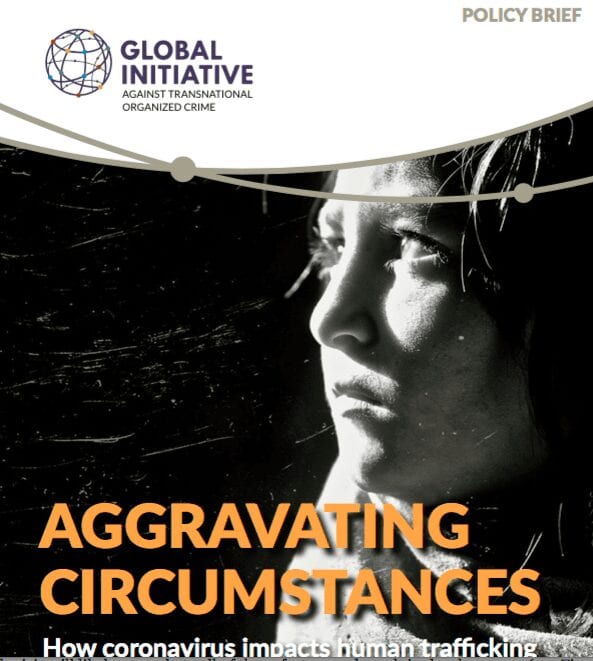
Aggravating Circumstances: How Coronavirus Impacts Human Trafficking
The coronavirus is not only claiming hundreds of thousands of lives, but is also causing a global economic crisis that is expected to rival or exceed that of any recession in the past 150 years. Although decisive action and containment measures are helping flatten the curve of infection, such measures inevitably deepen and lengthen the economic recession. In the worst-case scenario, the International Labour Organization (ILO) es mates that up to 25 million people will lose their jobs worldwide.
Poverty, lack of social or economic opportunity and limited labour protections are the main root causes6 and drivers that render people vulnerable or cause them to fall victim to human trafficking. This unprecedented crisis will likely exacerbate all of those factors and result in developments (see Figure 1) that must be noted by an – human-trafficking communities and stakeholders.
As we have seen from previous economic crises and epidemics (such as SARS and Ebola), accurate, consistent and timely information is essential in order to fight not only the coronavirus but also the consequences it has on human-trafficking situations. In researching this brief, the Global Initiative Against Transnational Organized Crime (GI-TOC) has spoken to its Network of Experts and Resilience Fund grantees who are directly fighting human trafficking in the field, and used inputs provided by our various an -trafficking networks, contacts and projects, including the Alliance 8.7’s Communications, Engagement and Advocacy Group, Freedom Collaborative COVID-19 Response platform and the Human Trafficking Foundation Google group. The brief has also drawn on the initial findings of the COVID-19 Impact survey conducted by the Tech Against Trafficking initiative – a coalition of global tech companies, human-trafficking survivors, civil- society organizations and international institutions in which GI-TOC serves as the research lead.
This brief aims to contribute to global an -trafficking efforts aimed at mitigating the effects of the pandemic on human-trafficking situations and actors, not only by providing timely, comprehensive overview and transparent information, but also by suggesting holistic and multi-stakeholder responses and interventions.
